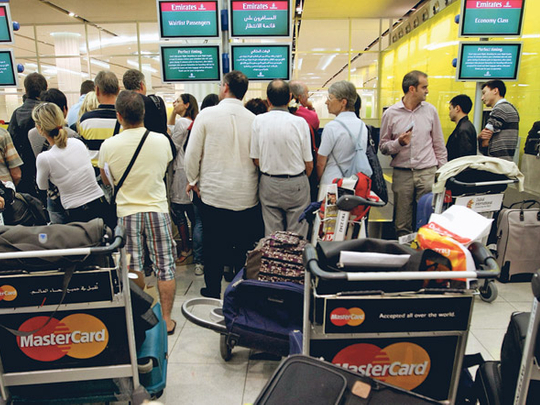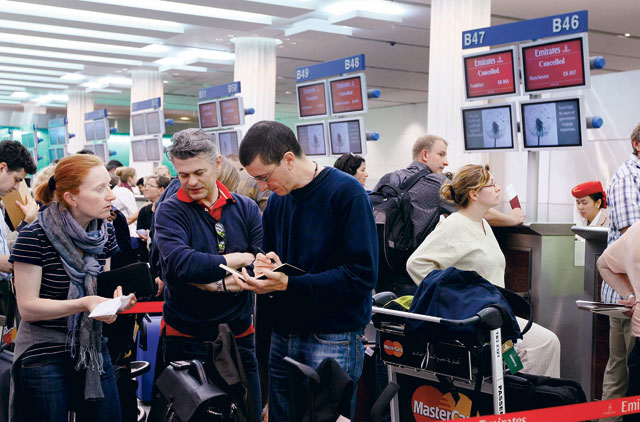
Dubai: Europe on Sunday ordered a full probe into the loss of billions of euros by airlines since the Icelandic volcano erupted, prompting the biggest airspace shutdown since the Second World War.
The EU will "fully assess the impact of the situation created by the volcanic ash on the economy, and the air travel industry in particular," said a statement from Brussels. The International Air Transport Association has warned that the travel mayhem was costing airlines more than $200 million (about Dh735 million) a day.
List of UAE flights affected: April 18
Tim Clark, President of Emirates said: "The scale of this crisis is unlike anything I have experienced in my career. The longer it continues, the more complex the recovery process becomes. Like every carrier operating to Europe, Emirates is facing huge losses. These are losses which are coming straight out of our own pocket," he said.
Emirates is losing about $10 million (about Dh37 million) in revenue a day, plus another $1 million (about Dh3.7 million) a day that it is paying to accommodate Emirates passengers, Clark said in a statement. "About 30 of our aircraft are grounded which represents about a fifth of our fleet," Clark said.
Flights from the UAE to Europe will resume only after airports are reopened. No schedule has yet been given.
Germany's Lufthansa and Air Berlin said that decisions to close airspace were not based on proper testing and that their aircraft showed no signs of damage after test flights without passengers.
"The flight ban, made just on the basis of computer calculations, is resulting in billion-high losses for the economy," Lufthansa spokesman Klaus Walter was quoted as saying. By some estimates, between 35-40 per cent of the world's goods move by air.
Scientists have said the Icelandic eruptions could continue on and off for months, potentially meaning more delays and closures.











